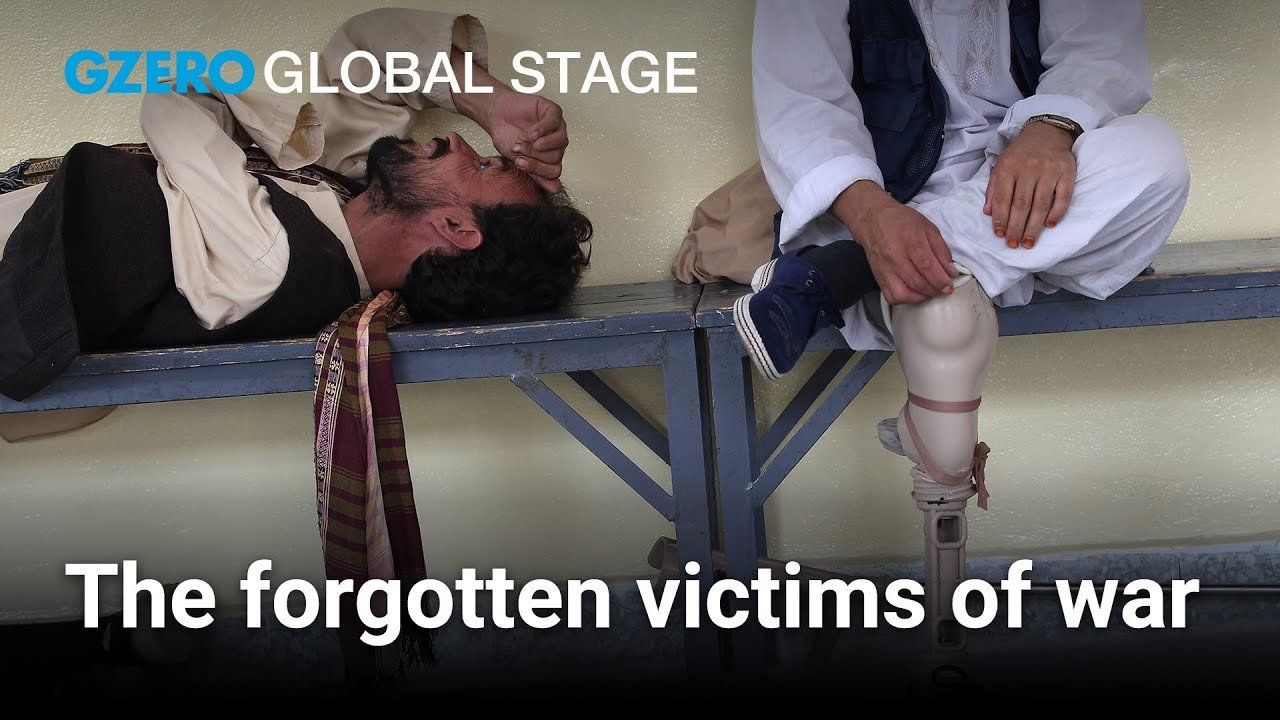September 25, 2024
In 2011, documentary photographer Giles Duley had what he describes as his “worst day at the office,” a day when he was critically injured by an improvised explosive device in Afghanistan. He lost both of his legs and his left arm, ended up in the hospital for a year, and was operated on 37 times. Duley was told he would never walk again, but 18 months after nearly being killed, he returned to Afghanistan and was back on the job.
“I realized that if I went back to do the work that I did, I would be better at it. I would have that relationship with the people that I documented that nobody else would,” Duley told GZERO this week in a conversation at the SDG Media Zone during the 79th UN General Assembly.
Duley is now the UN’s first global advocate for persons with disabilities in conflict and peacebuilding situations. He’s dedicated his life to documenting and spreading awareness on the long-term impact of war. Through his organization, Legacy of War Foundation, Duley also works to provide vital assistance to civilians affected by conflict.
With civilian casualties from landmines and explosive ordnance on the rise, particularly in places like Ukraine and Myanmar, Duley’s work could not be more pertinent. He’s calling for greater efforts to clear munitions used in present-day conflicts. If more isn’t done in this regard, Duley warns that “children not yet born will die from these wars.”
More For You
As expected, the Supreme Court struck down the bulk of Donald Trump's sweeping “Liberation Day” tariffs as illegal … and almost nothing changed.
Most Popular
What's Good Wednesdays
What’s Good Wednesdays™, February 25, 2026
Sponsored posts
Small businesses at a crossroads
Chris, an Army veteran, started his Walmart journey over 25 years ago as an hourly associate. Today, he manages a Distribution Center and serves as a mentor, helping others navigate their own paths to success. At Walmart, associates have the opportunity to take advantage of the pathways, perks, and pay that come with the job — with or without a college degree. In fact, more than 75% of Walmart management started as hourly associates. Learn more about how over 130,000 associates were promoted into roles of greater responsibility and higher pay in FY25.
Ukraine's President Volodymyr Zelenskiy, Finland's President Alexander Stubb, Estonia’s Prime Minister, President of the European Commission Ursula von der Leyen and other European leaders visit memorial to fallen Ukrainian defenders at the Independent Square on the fourth anniversary of Russia's full-scale invasion, in Kyiv, Ukraine February 24, 2026.
Ukrainian Presidential Press Service/Handout via REUTERS
Somewhere in the Donbas region, Ukrainian soldier Artem Bondarenko says he hasn’t slept through the night in months as he defends Eastern Ukraine.
- YouTube
In the latest episode of Vladimir Putin and Xi Jinping's hit wellness podcast This Authoritarian Life, we learn how positive communication patterns can break negative cycles in our relationships -- especially our relationships with Iran, Syria, Venezuela, and Cuba. #PUPPETREGIME
© 2025 GZERO Media. All Rights Reserved | A Eurasia Group media company.
